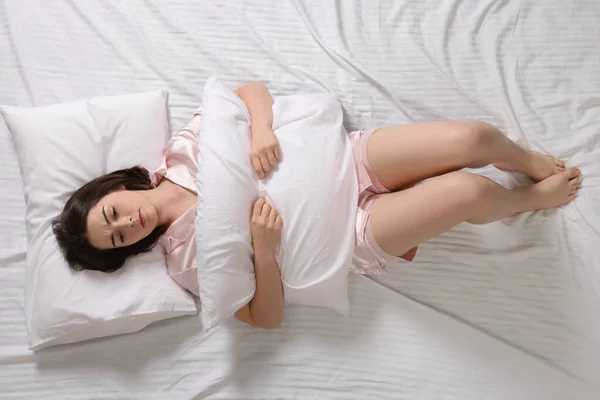Experiencing hip pain while sleeping can be a frustrating and debilitating issue that disrupts your rest and overall quality of life. Understanding the underlying causes, effective relief strategies, and when to seek medical attention are crucial steps in managing this condition. Here’s a comprehensive guide to help you navigate hip pain during sleep.

What Causes Hip Pain While Sleeping?
Hip pain at night can stem from various factors, including:
- Hip Conditions: Common conditions such as osteoarthritis, rheumatoid arthritis, and hip bursitis often lead to discomfort. Osteoarthritis, in particular, results from the wear and tear of cartilage, leading to stiffness and pain when lying down.
- Injuries: Past injuries or trauma to the hip can result in lingering pain that becomes more pronounced during rest. This includes fractures or strains that may not have healed properly.
- Sleeping Position: Your sleeping position can exacerbate hip pain. For instance, side sleeping without proper support can place undue pressure on the hips, leading to discomfort.
- Mattress Quality: A mattress that is too firm or soft may not provide adequate support for your hips, causing nighttime pain.
- Inflammation: Conditions like bursitis involve inflammation of the bursa around the hip joint, which can worsen when lying still for extended periods.
Understanding these causes is essential for implementing effective relief strategies.
How to Relieve Hip Pain While Sleeping
Here are four doctor-backed tips to help alleviate hip pain during sleep:
Adjust Your Sleeping Position
Changing your sleeping position can significantly reduce hip discomfort. If you typically sleep on your side, consider:
- Using a Pillow Between Your Knees: This helps align your hips and reduces pressure on the affected area.
- Sleeping on Your Back: This position distributes weight more evenly across your body, potentially relieving pressure on the hips.
Optimize Your Mattress and Bedding
The right mattress can make a world of difference in managing hip pain. Consider:
- Investing in a Quality Mattress: A medium-firm mattress often supports those with hip pain.
- Adding a Mattress Topper: A memory foam topper can help cushion your hips and improve overall comfort during sleep.
Incorporate Gentle Stretching and Exercises
Engaging in gentle stretching or low-impact exercises before bed can help alleviate stiffness. Focus on:
- Hip Flexor Stretches: These stretches can enhance flexibility and reduce tightness around the hip joint.
- Strengthening Exercises: Strengthening the muscles around your hips may provide better support and reduce pain over time.
Use Pain Relief Methods
If you’re struggling with persistent pain, consider:
- Over-the-Counter Pain Relievers: Non-steroidal anti-inflammatory drugs (NSAIDs) like ibuprofen can help manage pain before bedtime.
- Heat Therapy: Applying a warm compress or heating pad to the hip before sleep may relax tight muscles and improve comfort.
Implementing these strategies can improve sleep quality and reduce discomfort associated with hip pain.
When to See a Doctor for Hip Pain While Sleeping

While many cases of hip pain can be managed at home, certain symptoms warrant professional evaluation:
- Persistent Pain: If your hip pain continues despite home treatment or worsens over time, it’s essential to consult a healthcare provider.
- Severe Symptoms: Seek immediate medical attention if you experience severe pain following an injury, inability to bear weight on the affected leg, or signs of infection such as swelling or fever.
- Loss of Mobility: If you find it increasingly difficult to move your hip joint or perform daily activities due to pain, a professional assessment is necessary.
Early intervention can prevent further complications and improve your overall quality of life.
By understanding the causes of hip pain while sleeping and implementing these practical tips, you can take proactive steps toward achieving better rest and reducing discomfort. If symptoms persist or worsen, do not hesitate to seek medical advice for a tailored treatment plan.
Also Read | Miracle Move: How One Pelvic Tilt Stops Sciatica and Back Pain










